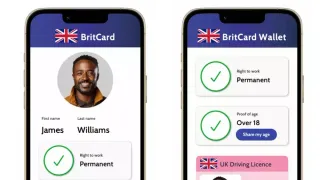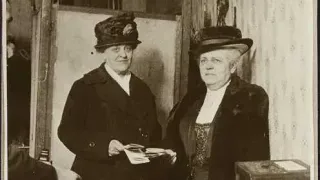
5 hours ago
Sims Fans Fear for LGBTQ+ Representation After EA Buyout by Saudi-Backed Consortium
READ TIME: 4 MIN.
The gaming world was rocked this week by the announcement that Electronic Arts (EA), the developer of the iconic life simulation series The Sims, has been acquired by a private investment consortium for a reported $55 billion. The consortium includes the Saudi Arabian Public Investment Fund (PIF), led by Crown Prince Mohammed bin Salman, as well as Affinity Partners, a firm owned by Jared Kushner, son-in-law to former U.S. President Donald Trump, and U.S.-based Silver Lake .
The news has sent shockwaves through the LGBTQ+ gaming community. For decades, The Sims has stood as a beacon of diversity and inclusion in the gaming industry. The franchise has enabled players to create Sims across a spectrum of sexual orientations, gender identities, and family structures, including polyamorous relationships and transgender or non-binary characters—a level of freedom and representation rarely seen elsewhere in mainstream games .
Many fans and creators fear the new ownership could jeopardize The Sims’ legacy of inclusion, given Saudi Arabia’s strict laws criminalizing same-sex relationships and gender nonconformity—acts that can carry severe penalties, including imprisonment or even the death penalty .
On X (formerly Twitter), the hashtag #SaveTheSims began trending as users expressed their anxiety. “Huge step back for one of the most inclusive and proudly woke games that built its legacy on diversity and representation… this is so out of character,” wrote one user . Others echoed concerns, noting that The Sims is “literally successful because it’s woke and gay.”
YouTuber Kayla Sims, known for her inclusive Sims content, said, “The Sims has been a very inclusive game for a long time, and it horrifies me to think of them rolling back any of that progress or somehow censoring the game. Making a change like that would alienate the entire player base of The Sims, and I think it would be an incredibly stupid and shortsighted move from the new investors that would backfire heavily” .
The Sims’ impact on LGBTQ+ visibility in gaming is profound. Since its debut in 2000, the franchise has provided a safe space for queer expression, notably surviving early attempts at censorship—a lesbian kiss during a demo at E3 1999 reportedly helped save the franchise from being shelved . The franchise’s commitment to diversity has made it a mainstay for LGBTQ+ gamers, offering validation and creative freedom often denied in both virtual and real-life societies.
For many, the risk is not simply that LGBTQ+ content might be erased in future updates or expansions. It is also about the optics and implications of supporting a company whose new owners represent regimes that actively criminalize queer identities. As one SimsCommunity.info commenter put it, “Meanwhile by purchasing DLCs for The Sims you’re literally putting money in the hands of companies who support REAL LIFE issues against representation. It’s EVEN WORSE than outright removing representation from the game, because at the end of the day, it’s just a game, but when we talk about the background of these companies who now own The Sims, it’s not just a game, it’s real people suffering from regimes that these companies defend” .
In the wake of the backlash, EA CEO Andrew Wilson issued a statement seeking to reassure players: “Our mission at EA to — Inspire The World To Play — continues to guide everything we do. Our values and our commitment to players and fans around the world remain unchanged.” However, Wilson’s statement stopped short of addressing The Sims franchise specifically or offering explicit guarantees about the protection of LGBTQ+ content moving forward .
Industry analysts and employee insiders have noted that the threat to LGBTQ+ content may be less about visible censorship—such as deleting queer characters—and more about subtle pressures: regional censorship, weakened diversity, equity, and inclusion (DEI) initiatives, and the discomfort of supporting a company now partially controlled by governments with anti-LGBTQ+ laws .
Developers within EA have reportedly expressed internal concern. One employee told SimsCommunity.info, “Is it sensationalist to say women/LGBTQ+ are at risk? The threat isn’t ‘EA deletes gay Sims.’ It’s more subtle: censorship in certain regions, weakened DEI initiatives, and the uncomfortable optics of LGBTQ+ gamers buying into a company partially controlled by a government that criminalizes them” .
The Sims is not the only EA game with a reputation for LGBTQ+ inclusion—titles like Mass Effect and Dragon Age, both developed by BioWare, have long featured queer romances and characters, and have similarly large queer fanbases. The acquisition raises wider questions about the future of progressive representation across EA’s portfolio .
The involvement of Saudi Arabia’s PIF in the Western entertainment industry is part of a broader trend often referred to as “entertainment-washing,” where investments in high-profile brands are seen as a way to soften global perceptions of the kingdom’s human rights record . LGBTQ+ advocates caution that such investments, while potentially beneficial for business, can have chilling effects on creative freedom and representation—especially when profit motives clash with the demand for authentic queer storytelling.
As of now, no changes have been announced to The Sims’ existing content or upcoming expansions. However, the buyout has left many LGBTQ+ players and allies wary and watchful. Calls for transparency, ongoing community engagement, and explicit commitments to maintaining and expanding inclusive content are growing louder.
Advocates are urging EA and its new owners to remember the franchise’s roots: The Sims is not merely a game, but a cultural touchstone for those who have so often been excluded from mainstream narratives. As one longtime player summarized on social media, “You can’t separate gay and The Sims” .
The coming months will be critical in determining whether The Sims—and the broader EA universe—can maintain its legacy as a safe, creative, and affirming space for LGBTQ+ players worldwide.






